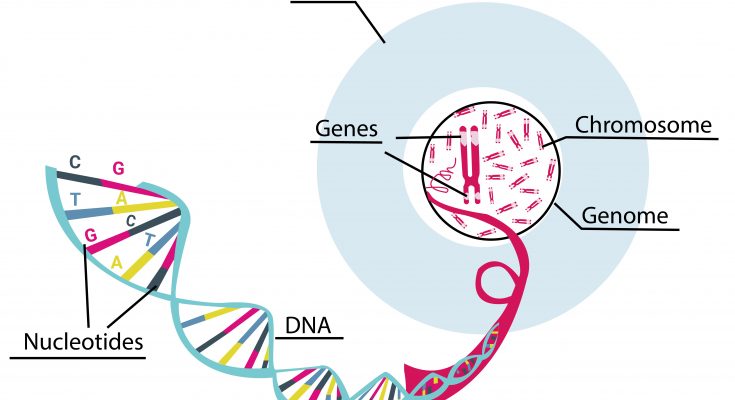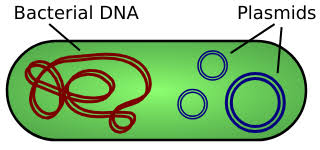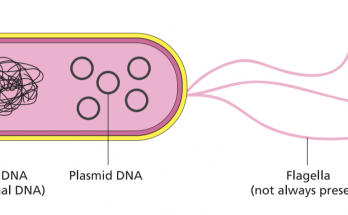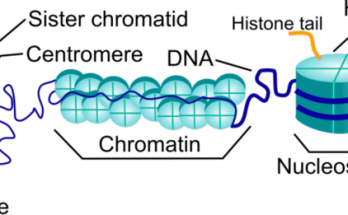The differences between a gene and a genome are crucial for students of genetics and molecular biology. A gene is a specific sequence within DNA that encodes instructions for building proteins, playing a key role in individual traits and functions. In contrast, the genome encompasses the entire set of genetic material in an organism, including all genes and non-coding sequences. This article provides a clear distinction between these two fundamental concepts, highlighting their roles, structure, and implications for genetic variation and evolution.
Table of Contents
Gene
- Definition- A gene is a segment of DNA that codes for the synthesis of RNA and proteins, which are essential for the various cellular functions.
- Function- Each gene is responsible for producing a specific protein or a set of proteins, influencing particular traits or processes within the body.
- Length- Genes vary in length but are generally a few hundred to a few thousand base pairs long.
Genome
- Definition- The genome includes all the genetic material of an organism, encompassing both the coding regions (genes) and non-coding DNA, as well as mitochondrial and chloroplast DNA in plants.
- Function- The genome contains the complete set of instructions for an organism’s development, reproduction, and maintenance.
- Length- The genome is composed of millions to billions of base pairs, depending on the organism.
Key Differences Between Gene and Genome In Tabular Format
| Aspect | Gene | Genome |
|---|---|---|
| Definition | Segment of DNA coding for proteins. | Entire set of DNA in an organism. |
| Length | Few hundred to thousand base pairs. | Millions to billions of base pairs. |
| Function | Codes for specific proteins; affects certain traits. | Governs development, physiological processes, and traits. |
| Field of Study | Genetics – focuses on individual genes and their impact. | Genomics – studies all genetic material and interactions. |
| Mutations | Changes in sequence can affect a single gene’s function. | Changes can affect many genes or entire chromosomes. |
Detailed Explanation of Differences Between Gene and Genome
Differences Between Gene and Genome in Terms of Scale and Complexity
- Gene- Genes are relatively small components of the much larger genome. Each gene occupies a specific locus on a chromosome and typically spans thousands of base pairs or less.
- Genome- The genome is much larger, containing millions to billions of base pairs, depending on the organism. It includes numerous genes, intergenic regions (non-coding DNA), regulatory sequences, and sometimes multiple chromosomes.
Also Check – 5 Key Differences between Chromosome and Chromatin
Differences Between Gene and Genome in Terms of Function
- Gene- The primary function of a gene is to specify the amino acid sequence of a protein or to produce functional RNA, including ribosomal RNA (rRNA) and transfer RNA (tRNA). Each gene influences specific cellular functions and traits.
- Genome- The genome holds the complete blueprint for constructing an organism, directing its growth, development, and reproduction. It determines not just physical traits but also biochemical processes and responses to environmental factors.
Also Check – 4 Important Differences Between Genes and Chromosomes
Differences Between Gene and Genome in Terms of Field of Study
- Gene- The study of genes, known as genetics, focuses on understanding how genes control the traits of organisms, how traits are passed from parents to offspring, and how variations in genes lead to variations in individuals.
- Genome- The field of genomics studies the entirety of an organism’s genes, including their sequences, interactions, and overall function within the genetic makeup. Genomics explores how the genome operates as a whole, how it evolves, and how its components interact to affect the organism.
Also Check – 6 Important Differences Between DNA and Chromosomes
Differences Between Gene and Genome in Terms of Impact of Mutations
- Gene Mutations- Mutations within a gene can alter the gene’s product, potentially leading to a malfunctioning protein or enzyme. This can affect specific traits or lead to diseases confined to the pathways controlled by that gene.
- Genome Mutations- These are large-scale mutations that can change the number or structure of chromosomes, affecting multiple genes at once. These mutations can result in significant genetic disorders or alterations in an organism’s overall development and function. Genome mutations can lead to chromosomal abnormalities such as deletions, duplications, and inversions, which generally have more drastic effects compared to single-gene mutations.
Also Check – 6 Key Differences Between DNA and Genes
Differences Between Gene and Genome in Terms of Visualization and Techniques
- Gene- Gene-specific studies often use techniques like PCR (polymerase chain reaction) for amplification, and sequencing to analyse the structure and function of individual genes.
- Genome- Genomic studies utilise high-throughput methods such as whole-genome sequencing, comparative genomics, and bioinformatics to understand the full DNA sequence and its functional capacities.
FAQs on Differences Between Gene and Genome
What is the definition of a gene and a genome?
- Answer- A gene is a specific segment of DNA that provides instructions for the synthesis of RNA or protein. In contrast, a genome encompasses all the nuclear DNA of an organism, including both coding and non-coding regions, as well as DNA from mitochondria and chloroplasts.
How does the length of a gene compare to that of a genome?
- Answer- A gene typically spans a few hundred to a few thousand base pairs, whereas a genome contains millions or even billions of base pairs, encompassing an entire organism’s DNA.
What are the fields of study associated with genes and genomes?
- Answer- The study of genes is known as genetics, which focuses on the roles and transmission of individual genes. The study of genomes, on the other hand, is called genomics, which examines all genetic material in an organism and how it functions as a whole.
Also Check – The Human Genome Project
Explain how gene mutations differ from genome mutations.
- Answer- Gene mutations are changes in the nucleotide sequence of a single gene, potentially affecting the protein produced by that gene. These can be point mutations, insertions, or deletions. Genome mutations are larger-scale changes that affect the structure or number of chromosomes, impacting multiple genes and leading to more significant changes in the organism’s genetic makeup.
Also Check – 8 Key Differences Between Plasmid DNA and Chromosomal DNA
Describe how variations in genes and genomes contribute to evolution.
- Answer- Variations in genes, known as alleles, contribute to evolutionary changes by providing different traits that can be selected for or against in a population. Variations in genomes, such as those caused by horizontal gene transfer or gene duplication, introduce new genetic material or rearrange existing genetic material, leading to significant evolutionary changes.
What is the function of a gene compared to that of a genome?
- Answer- A gene contains the information necessary for a cell to produce a specific protein or RNA, influencing particular cellular functions and traits. A genome contains the complete set of genetic instructions that determines everything about an organism, from physical appearance to metabolic processes.
How do gene and genome mutations differ in their impact on an organism?
- Answer- Gene mutations typically affect individual traits or functions and can range from benign to harmful. Genome mutations, due to their scale, can lead to widespread genetic changes, such as chromosomal abnormalities, which can have drastic effects on an organism’s overall health and development.
What types of genetic abnormalities can result from genome mutations?
- Answer- Genome mutations can cause chromosomal abnormalities such as deletions, duplications, rearrangements, and inversions. These abnormalities can disrupt multiple genes and lead to significant genetic disorders or phenotypic changes.



